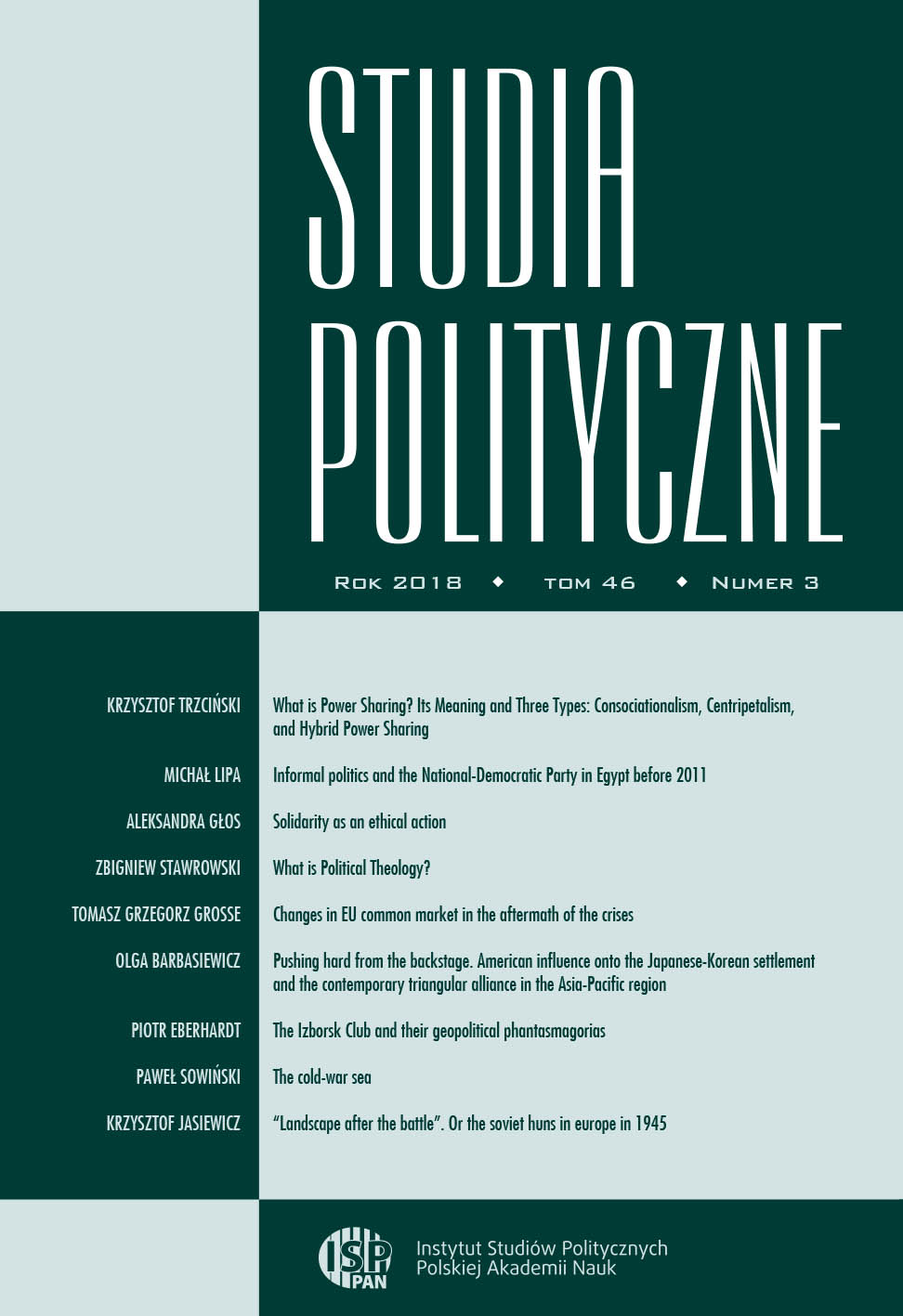What is Power Sharing? Its Meaning and Three Types: Consociationalism, Centripetalism, and Hybrid Power Sharing
What is Power Sharing? Its Meaning and Three Types: Consociationalism, Centripetalism, and Hybrid Power Sharing
Author(s): Krzysztof TrzcińskiSubject(s): Politics, Political Theory
Published by: Instytut Studiów Politycznych PAN
Keywords: power sharing; consociationalism; centripetalism; hybrid power sharing
Summary/Abstract: In this article the author analyzes the term “power sharing” (PS) in the context of power exercised within a state. He first examines the term in the very general sense, in which it can be applied to all types and dimensions of power sharing between various groups and institutional entities. Second, the author examines the meaning of the term in the narrow sense, that is, the phenomenon of systemic power sharing by groups (segments) whose membership is based on ascribed criteria such as common ancestors, relatives, or racial background, and/or cultural ones such as a common language, religion, or celebrations. The basic segmental units in this sense are nations (understood in the sociological sense), ethnic groups, or religious and denominational communities that form part of divided societies. Third, the article shows the differences between the principal models (types) of PS in the narrow sense: consociationalism, centripetalism, and hybrid power sharing.
Journal: Studia Polityczne
- Issue Year: 46/2018
- Issue No: 3
- Page Range: 9-30
- Page Count: 22
- Language: English

